Gao Yaojie, a retired gynecologist and medical professor who fled China in August 2009 after blowing the whistle on the impact of tainted blood-selling schemes on rural communities devastated by AIDS, has died in New York. She was 95.
Columbia University professor Andrew J. Nathan, who had Gao's legal power of attorney and managed some of her affairs, confirmed her death on Dec. 10 to the Associated Press.
In recent decades, official accounts of China's AIDS epidemic have typically blamed sex between men as the biggest driver of transmission of the virus.
But Gao repeatedly and consistently spoke out about the large numbers of people who were getting infected through blood transfusions and donor schemes, and was targeted for harassment – including a prolonged period under house arrest.
In rural Henan in the 1990s, donors were just as much at risk as hospital patients, as blood-selling clinics in poverty-stricken rural areas would inject them with untreated plasma after each paid-for donation, leaving entire villages with the disease, along with a growing number of AIDS orphans.
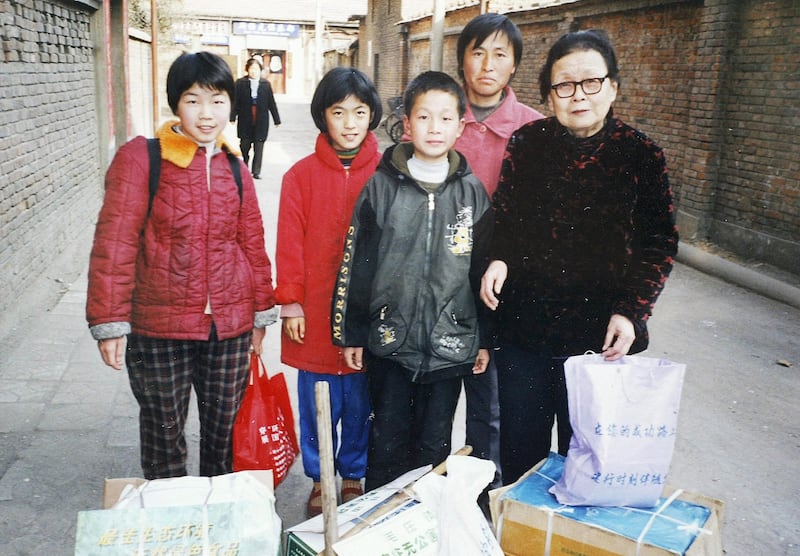
Residents of Henan's infamous "AIDS villages" said Gao would be remembered as a staunch advocate for their cause, which also sparked public demonstrations and campaigns for compensation.
"I just learned that Dr. Gao Yaojie passed away in the United States," a person with AIDS from Henan's Wenlou village who gave only the surname Liu for fear of reprisals told Radio Free Asia.
"She did so much for people living with HIV in Henan," she said. "Everyone is so sad that she passed away."
Under house arrest
Gao refused to remain silent after the ruling Communist Party claimed to have cracked down on blood-selling, shuttering all government-run clinics that engaged in the practice, saying that it had merely been forced underground.
She was placed under house arrest and cut off from all communication with the outside world. She said at the time: "Living was worse than death for me because I was under so much pressure."
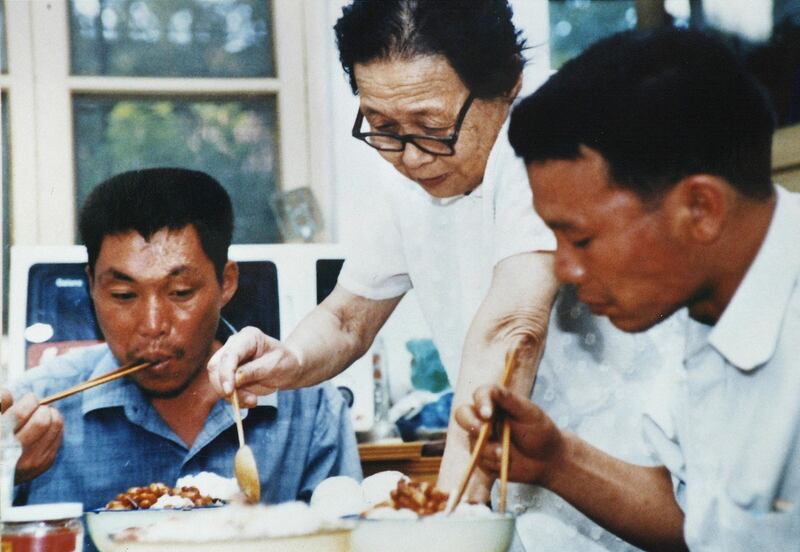
Another AIDS patient who gave only the surname Xie said Gao was a hero to people in Henan's AIDS villages, because her outspokenness eventually paid off – at least in some ways.
"When she was in Henan, she fought for us to get treatment, despite pressure from the government, and they finally agreed to provide free treatment for people infected with HIV," Xie said. "That was all Dr. Gao's doing."
A friend of Gao who gave only the surname Chang for fear of reprisals said Gao had forced the Henan authorities to change their approach to rampant HIV infection in the province.
"She cared so much about people living with HIV, and she really persevered," Chang said. "She cared about their rights and interests, and how they were being infringed, especially in public health. She was under a lot of pressure [for that from the authorities]."
‘The nation’s conscience’
In later life, Gao focused on helping and highlighting the plight of the AIDS orphans, healthy children whose parents had both died of AIDS contracted through blood-selling.
An activist who declined to be named said Gao had played a very important role in suppressing the AIDS epidemic in China.
"She was amazing – the nation's conscience," they said, declining to be named for fear of official reprisals.
Gao made her first trip to the United States in March 2007 to receive the Global Leadership Award, Women Changing Our World by the Vital Voices Global Partnership.
She spoke then of having written two books based on her work with AIDS patients and their families in impoverished rural areas where blood-selling was rife; those selling blood were usually infected with HIV when receiving untreated plasma infusions at clinics after selling their blood.
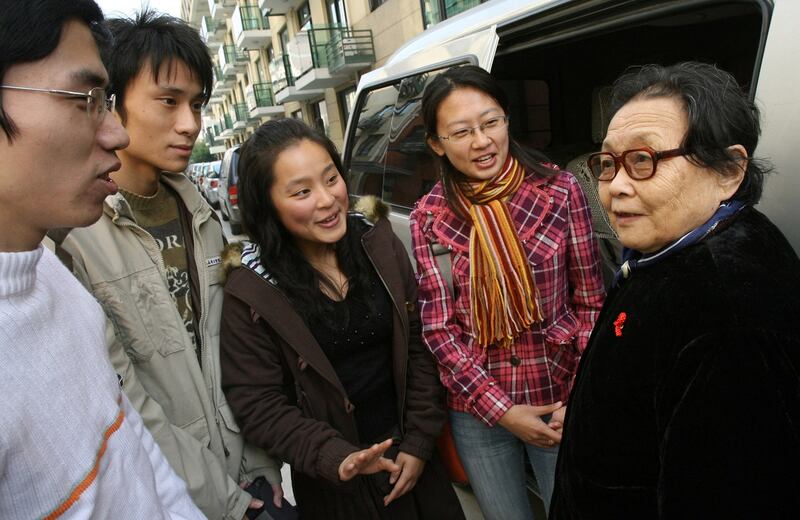
No publisher in China would publish the books, then titled "10 Years in AIDS Prevention" and "AIDS Orphans," and those who had accepted it lost their jobs.
So Gao self-published "The Prevention of AIDS and Sexually Transmitted Diseases" and distributed 300,000 copies under her own steam, using a US$20,000 Jonathan Mann Award – named for the AIDS expert and campaigner who died on Swissair Flight 111 in 1998.
In 2001, she was awarded the Jonathan Mann Award for Health and Human Rights and named by Time Magazine as its Asian Heroine the year after. The following year, she was awarded the Ramon Magsaysay Award for Public Service in Manila, Philippines, but was denied permission to leave China to receive either of the two awards in person.
And in September 2007, the New York Academy of Sciences awarded her the Heinz R. Pagels Human Rights of Scientists Award.
After moving to the United States, Gao struggled through years of ill-health to publish her 2008 autobiography, "The Soul of Gao Yaojie," published by Ming Pao Publications Limited (Hong Kong). An English version, "The Soul of Gao Yaojie: A Memoir," followed in November 2011.
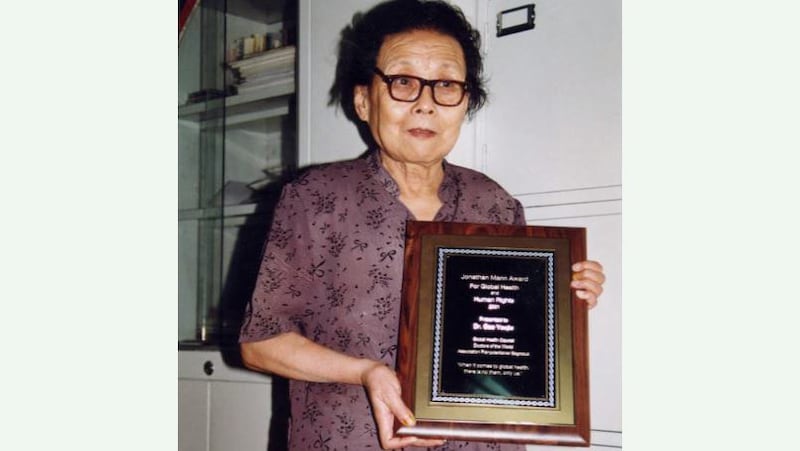
On Feb. 7, 2015, Gao received the 2014 Liu Binyan Conscience Award for writers, at an award ceremony held at her New York apartment attended by fellow writers and judges.
But Gao also complained that her later years were overshadowed by medical fraudsters wanting to use her name and reputation to peddle quack AIDS remedies.
End-of-life statement
In November 2016, Gao issued an " end-of-life" statement, and spoke to RFA's Mandarin Service about her experiences as an exile in New York.
"My name is Gao Yaojie. I hereby solemnly declare that when I die, I would like my body to be cremated, not buried in a grave," she said. "I would like my ashes to be scattered in the Yellow River as soon as possible after my death, with no ceremony of any kind."
"Through this declaration, I want to let friends around the world know that I do not want the achievements of my lifetime or my death to be used by others to achieve fame," she said.
"I have been in the United States for eight years now, but I still don't speak the language," she said. "I can't tell what kind of a person a white person or any other ethnicity is, but I can tell you that I have been visited by a lot of Chinese people, many of whom lied to me."
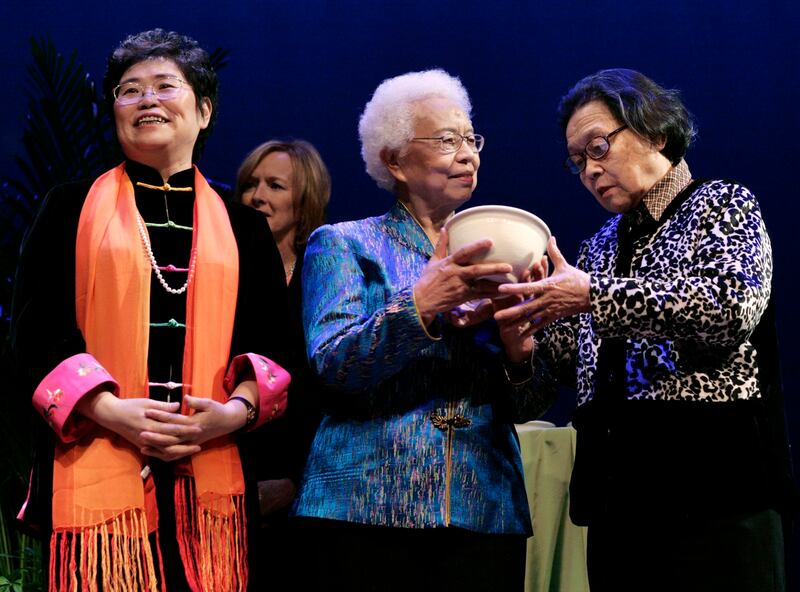
"That's why I don't want a tomb, because I am worried that these lying people will try to make money out of it," she said. "That's why I can't stay in America. I want to float eastwards down the Yellow River, and basically disappear from this world."
In a 2009 interview with RFA Mandarin, Gao said China is on the "wrong path" because power struggles among the leadership are expressed as convulsive and violent political movements.
She said this had irreparably damaged the moral and ethical capacity of its citizens.
"Nobody has any internal moral compass to tell them what is right and what is wrong," Gao said. "There are so many examples of this you would never get done talking about them. For example, fake medical doctors in China is one example that leaps out.
"Things started to go wrong for China in the 1950s and 1960s. You didn't have this sort of thing before that. The most egregious example was that of the Cultural Revolution," she said. "That's when people learned how to operate in cliques ... and now these cliques are even operating overseas."
Yet Gao was "not alone" in her later years in New York, according to rights activist He Peirong.
"In later life, Gao Yaojie had people taking care of her," He said. "Chinese students studying in New York would take turns caring for her and looking out for her."
"She wasn't lonely at all," she said.
Translated by Luisetta Mudie. Edited by Malcolm Foster.
